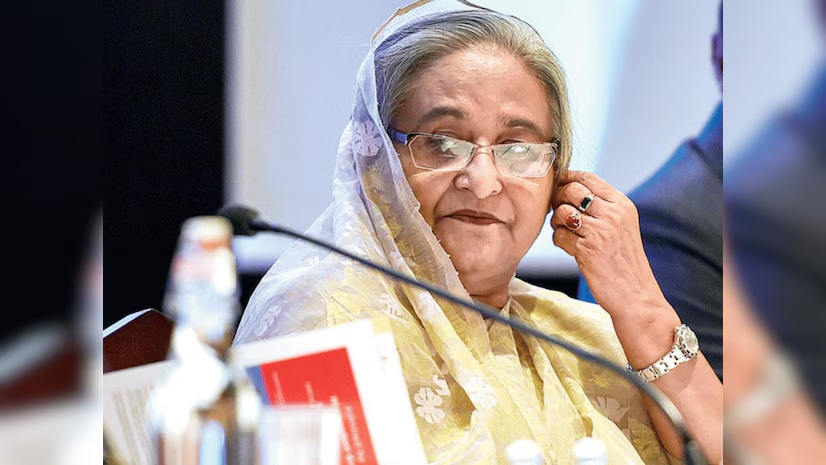
Table of Contents
Sheikh Hasina’s departure from Dhaka in 2024 marks a pivotal moment in Bangladesh’s political history. After years of ruling the country, her exit amidst mounting civil unrest and political turbulence has sparked intense speculation about her next steps. As a former prime minister with deep ties to the nation’s political fabric, her choices will have far-reaching implications for both her future and Bangladesh’s trajectory.
The Context of Her Departure
In 2024, Sheikh Hasina faced growing opposition and unrest, culminating in a massive student-led protest that rapidly expanded into a nationwide movement. The unrest, sparked by dissatisfaction with government policies, particularly the reinstatement of a controversial job quota system, quickly morphed into a broader critique of her governance. The protests were marked by widespread violence, clashes with security forces, and a general sense of dissatisfaction with the status quo.
Amid this escalating crisis, Sheikh Hasina was forced to step down, a move that some viewed as inevitable given the intensity of the protests. The army, under General Waker-uz-Zaman, played a crucial role in her ousting, with plans announced for an interim government to stabilize the situation. The departure of such a longstanding and influential leader left a power vacuum in Bangladesh, raising questions about the country’s immediate future and Hasina’s own plans.Sheikh Hasina
India: A Likely First Stop
Sheikh Hasina’s close ties with India, particularly with the ruling Bharatiya Janata Party (BJP) under Prime Minister Narendra Modi, make India a likely first stop in her post-Dhaka journey. Historically, India has been a staunch supporter of Hasina, backing her government on multiple occasions, especially in international forums. This relationship has been mutually beneficial, with India viewing Bangladesh as a crucial partner in South Asian geopolitics and security.
India’s strategic interests in the region, combined with Hasina’s alignment with many of these interests, make it a safe haven for her in the short term. Furthermore, India has a history of providing refuge to South Asian political leaders in times of crisis, offering them a platform from which to strategize their next moves. For Hasina, being in India would allow her to remain close to Bangladesh, maintain communication with her political allies, and possibly plan a return to power if the situation in Dhaka stabilizes. Sheikh Hasina
Other Potential Destinations
While India seems the most probable destination, other countries may also be on Hasina’s radar. The United Kingdom, where Hasina has familial ties and a significant diaspora of Bangladeshi origin, could be another option. The UK has long been a center of exile for political figures from South Asia, providing a base for those who seek to influence events in their home countries from afar. Moreover, Hasina’s connections with British political figures and her past visits to the UK add to the likelihood of this being a viable option.
The United States is another potential destination, particularly given Hasina’s international stature and connections with American political circles. The U.S. has been a critical partner for Bangladesh, especially in areas such as counterterrorism, economic development, and regional security. Hasina could leverage these ties to seek refuge in the U.S., where she might also find opportunities to engage with international organizations and advocate for her political vision for Bangladesh.
Middle Eastern countries, such as the United Arab Emirates or Saudi Arabia, might also be considered. These nations have provided asylum to various political figures from across the region and offer a level of security and neutrality that might appeal to Hasina in her current circumstances. Additionally, the strong economic and diplomatic ties between Bangladesh and these countries could play a role in her decision. indianfastearning.com
Strategic Considerations for Hasina
Sheikh Hasina’s next moves will likely be influenced by a combination of personal safety concerns, political calculations, and her desire to remain a significant figure in Bangladesh’s political landscape. If she aims to maintain her influence and eventually return to power, staying close to Bangladesh would be advantageous. This proximity would allow her to stay engaged with her political base, monitor the evolving situation in Dhaka, and respond quickly to any opportunities for a comeback.
Conversely, if her priority is safety and international advocacy, relocating to a more distant, but politically influential, country like the U.S. or the UK might be more appealing. These countries would provide her with a platform to voice her views on Bangladesh’s situation and rally international support for her cause. Additionally, being in a Western country might offer her a level of security and stability that could be harder to guarantee in the more volatile South Asian region.
Impact on Bangladesh’s Political Landscape
Hasina’s departure has undoubtedly left a significant void in Bangladesh’s political arena. The interim government, led by the military, faces the daunting task of restoring order and guiding the country towards stability. The student protesters and opposition parties are likely to push for sweeping reforms, particularly regarding the controversial job quota system and broader issues of governance, corruption, and electoral integrity.
The success of these reforms will depend heavily on the interim government’s ability to engage with various stakeholders, including civil society groups, political parties, and international actors. If the interim government manages to stabilize the situation and hold credible elections, it could pave the way for a new political era in Bangladesh. However, if the situation remains volatile, there is a risk of further unrest and instability, which could open the door for Hasina to return as a stabilizing figure.
Long-term Prospects for Sheikh Hasina
In the long run, Sheikh Hasina’s role in Bangladesh’s future will depend on how the political dynamics evolve. If the interim government is successful in restoring stability and organizing free and fair elections, Hasina’s chances of returning to power may diminish. However, if the interim administration struggles to maintain order and fails to address the underlying issues that led to the protests, Hasina could position herself as a critical player advocating for stability and democratic governance.







